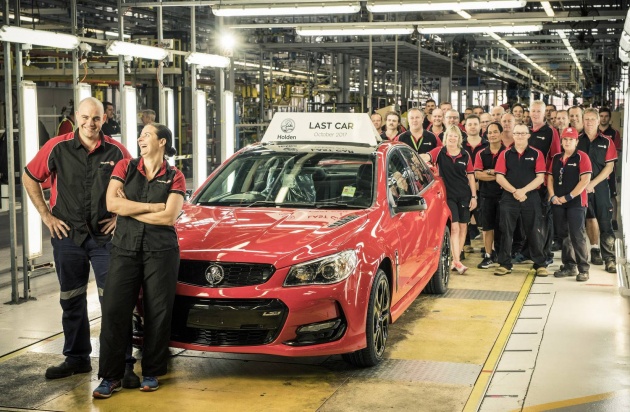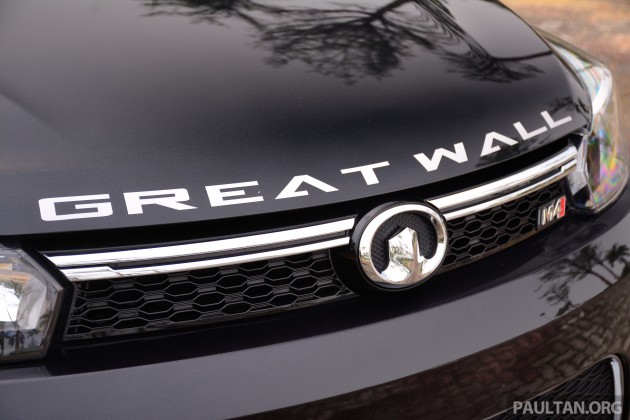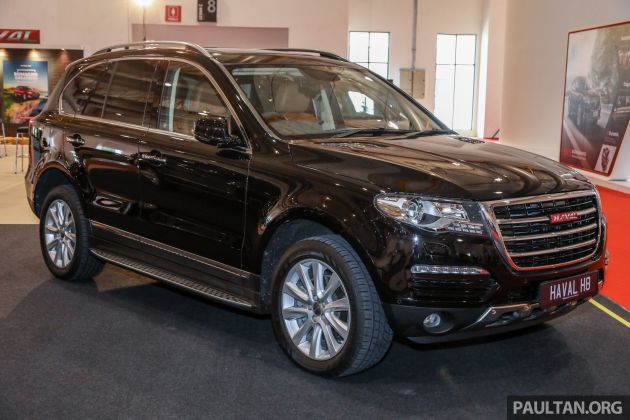You’ve read about GM’s decision to wind down sales, design and engineering operations in Australia and New Zealand, as well as retiring the Holden brand from those markets; well, that’s not all. Closer to home, the US giant is also exiting Thailand.
The carmaker said it will withdraw the Chevrolet brand from Thailand by the end of 2020, and said that China’s Great Wall Motor (GWM) has agreed to buy over its manufacturing plants in Rayong. It has a 180k capacity vehicle assembly plant on the eastern seaboard as well as a powertrain plant with 120k capacity. After-sales support for local Chevy owners will continue via the dealer network.
Now, this comes as a surprise because Chevrolet Thailand “renewed its commitment for 2020” at the 2019 Dealer Recognition and Grandmasters Award Ceremony just last month.
“In 2020, we will continue to put the customer at the centre of everything we do at Chevrolet. This includes the launch of exciting vehicles that will attract both new and returning customers and the continued nationwide roll-out of our 2S and 3S centres to expand service coverage and customer care right across Thailand,” Piyanuch Chaturaphat, general director of sales said at the event.
The event in Bangkok also saw Chevrolet dealerships renewed their ongoing commitment to the brand and its customers by signing the 2020 Dealer Sales and Service Agreement. They won’t be a happy lot that’s for sure.
GM’s co-ordinated retreat is part of the company’s plan to exit unprofitable markets including Europe, while focusing on North America, China, Latin America and South Korea. With the planned sale of its Thai plant, GM has essentially given up on the rest of ASEAN as well, as the Land of Smiles is the company’s regional hub.
GM is “focusing on markets where we have the right strategies to drive robust returns, and prioritising global investments that will drive growth in the future of mobility,” especially in electric and autonomous vehicles, GM chairman and CEO Mary Barra said in a statement. “I’ve often said that we will do the right thing, even when it’s hard, and this is one of those times,” she added.
Since taking over the hot seat in 2014, Barra has prioritised profit margins over sales volume and a global presence. In 2017, GM sold its Opel/Vauxhall European arm to Peugeot and exited South Africa and other African markets. Subsequently, Barra made the call to pull out of Vietnam, Indonesia and India. In 2015, GM killed off the Chevrolet brand in Europe and left the Russian market.
“Our decision to cease production at the Rayong site is based on GM’s global strategy and optimisation of our manufacturing footprint around the world. In this context, sale of the Rayong plants to GWM is best option to support future vehicle manufacturing at this site,” said GM’s international operations senior VP Julian Blissett.
GM’s strategic markets, alliances and distributors president Andy Dunstan said GM had undertaken a detailed analysis of the business case to allocate a new vehicle program to Rayong. However, low plant utilisation, forecast domestic and export volumes impacted the business case significantly.
“GM explored a range of options to maintain Chevrolet in Thailand’s new vehicle sales market. Regrettably, without a domestic manufacturing footprint, it is not viable for Chevrolet to compete in the Thai market,” he added.
There are similarities with the geopolitical situation in Asia. As the Americans retreat, the Chinese are expanding their presence in the region. GWM, one of China’s biggest SUV makers and owner of the Haval brand, said that it will sell vehicles from the Thai plant across the region and Australia, essentially picking up where GM left off. China’s previously red hot auto market has slowed, and its car companies are now looking abroad for growth.
“The global strategy of GWM has begun to take shape after more than 10 years of development. In the past two years, through the export model transformation and upgrades, GWM has accelerated the pace of its strategic global rollout. In 2019, GWM’s Tula plant in Russia successfully started production, and the company also reached an agreement with GM to acquire its Talegaon Plant in India in early 2020,” GWM global strategy VP Liu Xiangshang said.
“The ASEAN automotive market is a developing one and a market with great prospects and potential. Entering the Thai market is the first step for GWM to enter the ASEAN market, and is also an important step in GWM’s global strategy. Our investment will create more jobs in the local area, including direct and indirect employment and further enhance skill development in the automotive industry. We will also promote the development of the local supply chain, R&D and related industries, plus contribute more to the exchequer of both the local Rayong and Thailand governments,” he added.
This isn’t the first time GWM is buying from GM. As pointed out by Liu, earlier this year the Baoding-based company signed an agreement to purchase a GM plant in India. Both parties said they expect the transaction to be completed by Q2 2020.











Tinggalkan komen anda